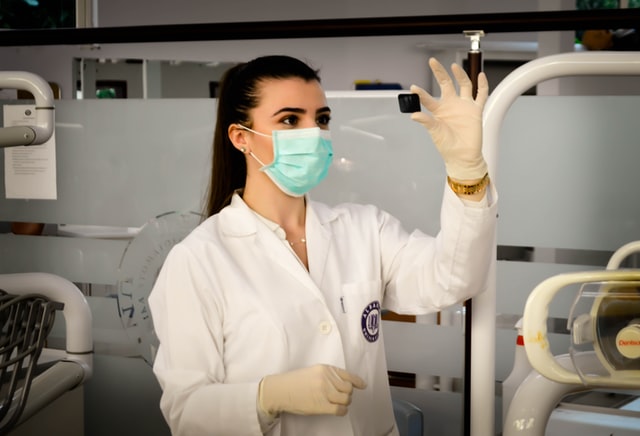If you are looking for a career option that is exciting, fast-paced and gives you the opportunity to help others every day, the healthcare industry might be a good fit for you. There are lots of different kinds of career opportunities in healthcare, and each one has its own set of unique responsibilities and roles. Learning about the different types of healthcare roles that you can get into and the earning potential for each one can help you determine whether or not this career path is the right option for you. Keep reading to find out more about some of the main advantages of working in the healthcare industry, the skills you need to succeed in this industry, and how to improve some of the most sought-after healthcare skills today.
Why Work in Healthcare?
The healthcare industry offers many exciting and compelling career options to choose from, with options for people with a wide variety of interests and strengths. Some of the top reasons why people decide to get into a career in healthcare include:
- Rewarding and Fulfilling Work
People who work in healthcare, from the front-line nurses and doctors at the bedside to the employees making sure that everything runs smoothly behind the scenes, spend their careers making a difference in the lives of other people. Being able to make this kind of impact with the work that you do can increase your motivation, lead to a high overall level of job satisfaction, and be generally fulfilling and rewarding work.
- Great Earning Potential
Many healthcare careers offer an above-average salary, particularly for those working for government organizations or hospitals.
- Great Job Outlook
The healthcare industry is growing rapidly and is only expected to expand further over the next decade, particularly due to the aging population which is leading to people requiring more healthcare services.
- Various Career Opportunities
When it comes to working in healthcare, there are lots of career options to choose from based on what you are most interested in. Whether you want to work directly with patients or are interested in a more administrative position, healthcare offers a wide range of roles to choose from and many professionals will even change their role multiple times before deciding what they want to do.
- Interesting Work
If the idea of working in an office bores you, healthcare might be for you. While there are just as many office jobs available for people who prefer this kind of work environment, many healthcare professionals will experience a workday that is busy and fast-paced in an atmosphere that is constantly changing.
- Travel Opportunities
Around the world, good healthcare professionals are always in demand. Whether you decide to become a nurse, doctor, other healthcare professional, or a healthcare administrator, you can find work no matter where you go from large urban locations to small rural towns.
- Flexible Work Schedules
Since medical help is needed twenty-four hours per day, seven days per week, many healthcare jobs offer a flexible work schedule including working overnight, shorter work weeks, and remote work for certain positions.
- Roles for All Educational Levels
No matter your level of education, from high school qualifications to this healthcare EMHA from uOttawa, there are positions available in healthcare for people with a wide range of qualifications.
Skills You Need to Work in Healthcare
The skills that you will need to work in the healthcare industry can vary from the technical skills that are often required of many medical professionals to the soft skills that can be applied to many different fields. While doctors and nurses will certainly need to have technical expertise in medicine, they will also need to have a wide variety of soft skills including the ability to communicate with others well, empathise with their patients, and manage their stress levels well. Healthcare skills refer to any skills that are useful for people who work in a healthcare role. If you are currently looking for work in the healthcare field, it’s useful to have these soft skills on your resume.
Communication
Whether you are working as a nurse or a hospital administrator, you are likely to spend some time interacting with patients and co-workers. Communication skills are necessary to make it easier for you to communicate more effectively with colleagues, patients, and anybody else that you come into contact with throughout your career. Active listening skills are an important part of communication skills that many healthcare professionals need to develop in order to better communicate with patients and understand their needs.
Time Management
Most healthcare facilities have very busy periods, which is why anybody working in healthcare should have good time management skills. Whether you are handling lots of paperwork or working directly with a lot of patients who are waiting to be seen, good time management skills allow you to handle the workload more effectively.
Positive Attitude
Having a positive attitude is often a must in the healthcare industry, no matter what role you go into. Most healthcare employers want to hire professionals who are easy to work with and have a positive outlook and manner when speaking with co-workers or patients. Not only will your positive attitude improve your employability, but it will also be very helpful when you are interacting with others.
Flexibility
Depending on the role that you decide to get into, the daily schedule of a healthcare professional can vary depending on the facility needs and patient needs. Being skilled at adapting to change and generally being a flexible person is often needed in these roles and demonstrating this on your resume shows potential employers that they can rely on you to adjust when needed to complete your work and that changing circumstances are something that you can easily deal with.
Empathy
Empathy is important for anybody working in healthcare in order to make the biggest impact on patients and patient care. Nurses and doctors need empathy in order to put their patients at ease and be more effective, while professionals working behind the scenes in healthcare such as hospital administrators are often more effective when applying empathy to the decisions that they make and putting themselves in the patients’ shoes. Empathy can also be a very helpful trait to have when interacting with co-workers.
Attention to Detail
Whether you are treating patients, coming up with schedules or designing new policies for a facility, being skilled when it comes to paying attention to detail will help you get things right the first time around. When it comes to working in healthcare there are lots of small details involved, so demonstrating this skill on your resume will help you stand out to potential employers and show that you take your work seriously.
Stress Management
Even in quiet clinics or healthcare jobs behind the scenes, it’s likely that you may work through some stressful times. And for healthcare workers who work in the emergency department or another fast-paced environment in healthcare, it can get very stressful. Developing skills to help you manage your stress levels well so that stress does not begin to impact on your work will not only help you appeal to potential employers, but also make the work easier for yourself.
Receptive Attitude
Many healthcare positions are careers that will require you to learn new skills and improve your current skills on a regular basis. Whether you need to learn new billing methods or new technical skills related to medical technology advancements, a receptive attitude will help you go further in the healthcare industry.
Improving Your Healthcare Skills
Whether you want to improve your performance at your current job or are looking to get a new job and want to improve your healthcare skills to achieve your goals, there are several things that you can do to get better at all the above sought-after healthcare skills. You may also consider improving your technical skills for the healthcare role that you are currently in, which may require enrolling in further education, training courses, or taking on more responsibilities in the workplace. Some of the top ways to improve your healthcare skills include:
- Get Better at Communication
There are several things that you can do to improve your communication skills in the workplace. Spend some time reading about advanced communication techniques, research ways to be a more effective communicator, or take a class designed to help you improve your communication. However, the best way to become a better communicator is to simply practice on a regular basis.
- Improve Time Management Skills
The better you are at managing your time, the more successful you are likely to be in a range of healthcare career roles. To improve your time management skills, there are several things that you can do including working on organising your time more efficiently using a range of methods such as to-do lists. Reducing distractions throughout your working day can also be a simple yet effective method of using your time more effectively.
- Practice Being More Positive
Working on having a more positive attitude can help you take your healthcare career further. To do this, you may need to rethink your automatic responses to your environment. If you feel that it would be helpful, some talking therapies such as CBT can make a big difference to how you respond to certain situations and can help you take on a more positive outlook.
- Practice Flexibility
Some people are naturally not as flexible as others, but even if you are quite rigid by nature, you can still become more flexible with practice. Start by making minor changes and try to make an effort to react more positively to anything that requires more flexibility than you’d normally be prepared to give on your part.
- Increase Your Empathy
Most people have some natural empathy; however, this is another skill that you can increase over time. Therapy can also help you become more of an empathetic person, but there are several things that you can do on your own to work on how you react to different situations. For example, when you are interacting with somebody else, make an effort to consider their point of view more and imagine how they must be feeling. When you practice this on a regular basis, it can begin to become more of an automatic reaction for you.
- Improve Your Attention to Detail
Having better attention to detail will often require you to be fully present in the moment to help you avoid becoming distracted by the details of anything else that is going on around you. To help practice this, you may want to try strategies such as writing down what people are saying so that you remember or blocking all distractions out when you are speaking to somebody or working on something.
- Learn Stress Management Techniques
Having several stress management techniques that you can turn to can be very helpful for any healthcare career. This will usually begin with getting familiar with what works for you when it comes to reducing your stress. There are several things that you can do that may help to reduce your stress levels during the workday and keep you in control; research some options and try some out to find which ones are the most effective.
- Accept Feedback
To improve your healthcare skills, it’s important to be prepared to accept feedback and constructive criticism. Not only will this help you determine the areas that you need to work on the most in order to improve your skills and career but it will also increase your receptive attitude and show employers that you are a person who is always looking to improve themselves and learn something new, which can help you get further in your career.
Healthcare is an industry with a variety of roles on offer for people with different knowledge bases, qualifications, interests, and skills. No matter where you work in healthcare, however, it is likely that you are going to need these sought-after soft skills to succeed.







































